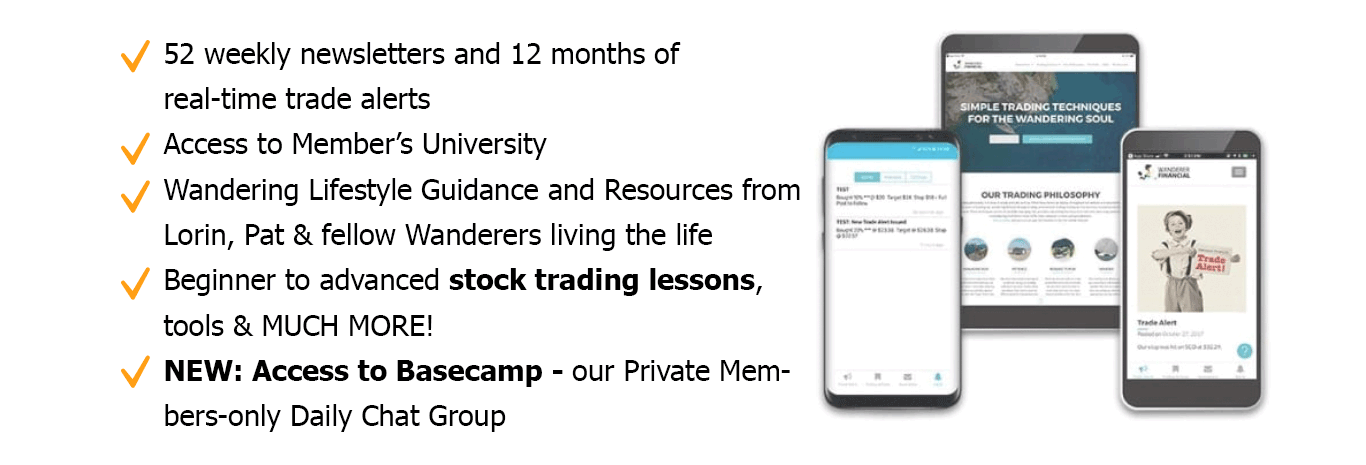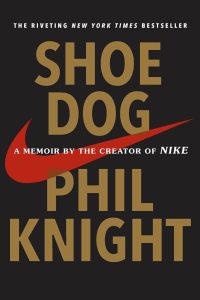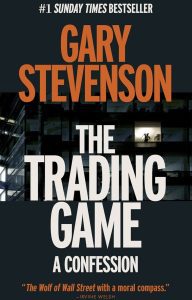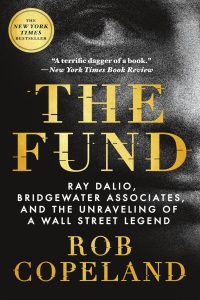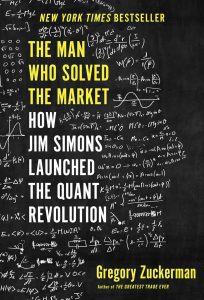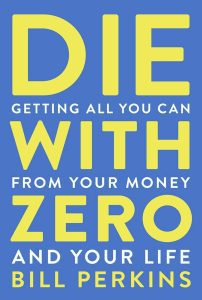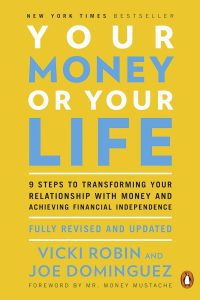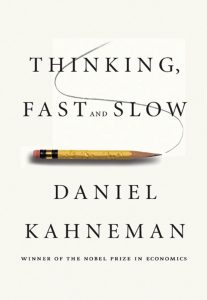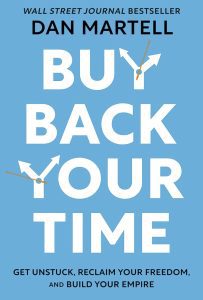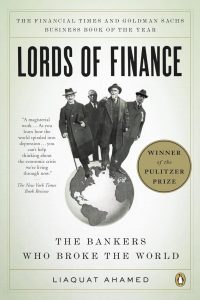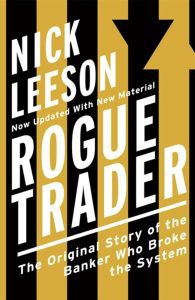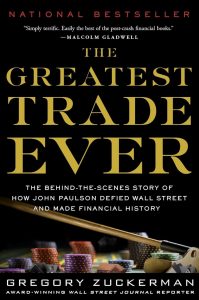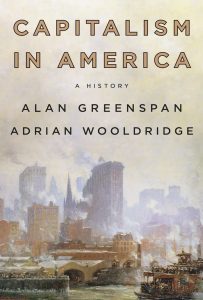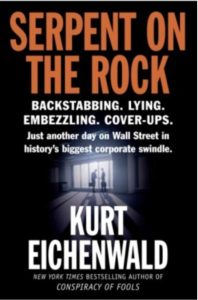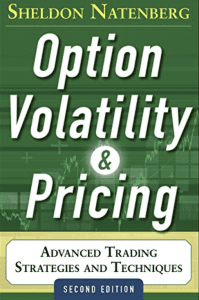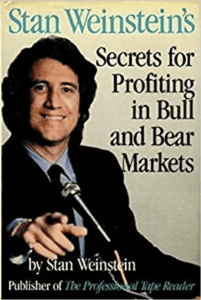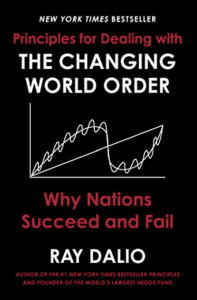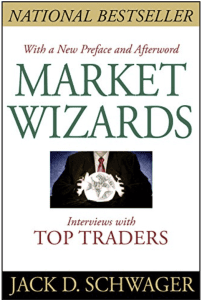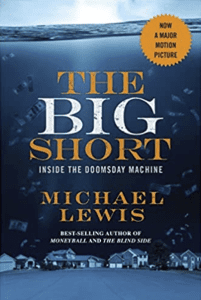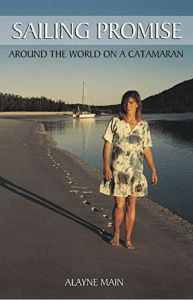
We read a lot. And most of it is related to two particular subjects, trading/finance/economics (we'll call that one subject), and travel. Both of which seem quite applicable to those at Wanderer Financial. Here's our list—in no particular order and not at all comprehensive—of books we really enjoy about both topics. It's an ongoing list that we'll continue to add to as we read new books or refer back to old books we'd forgotten about. And if you've got a favorite, please let us know by dropping us a note at newsletter@wandererfinancial.com. We should also mention that the links below are Wanderer affiliate links to Amazon.
I'd been told about this book multiple times, but repeatedly put it off. Another, look at me, I'm a rich CEO founder, story? Let's face it, most CEO's stories aren't very compelling. Rich family, rich school, access to investors, a company is born. And while Phil's story isn't quite that, it isn't super far off. But, credit where credit is due, tennis shoes went from nowhere to everywhere because of him.
I enjoyed Shoe Dog's year-by-year storyline. Watching the evolution from importing Japanese Tigers, when selling a few thousand pairs of tennis shoes a year was considered significant, to the world of shoes we live in today. It's a fun romp.
I always enjoy a good Wall Street trading firm tale. They are often like this one—young kid right out of college, no real background in finance, suddenly finds himself promoted to head of a trading desk receiving millions of dollars a year in bonuses. The one thing that always irks me, though, and this book is no different, is how they always talk as if their trading was done at some risk to themselves personally. Saying things like, "I made $100 million on that Euro trade." No you didn't. You risked the bank's money, and made the bank more money. They slipped you a small percentage for doing so. As a trader who has only ever risked my own money, I probably take greater offense to this than I should. But to my mind these guys aren't traders, they are casino employees, playing with the casino's chips, and have all the odds in their favor. That said, if you liked Liar's Poker, you'll like The Trading Game
Ray Dalio is a very intelligent person, who makes a lot of great observations about the economy, and particularly about the world economy. However, Wall Street has a long history of "boys who cry wolf" and for that, Dalio is incredibly adept. Like so many on Wall Street he is an expert at making grandiose statements and getting the media to listen. And like so many others who cry wolf in the markets, he is expert at pretending all those wrong calls never happened at all. If you are right 1 time in 10, did the other 9 even happen? Not on CNBC. The Fund is a great book that uncovers one of the most bizarre personalities in the business.
Jim Simons is a fascinating guy. Today, his Renaissance Technologies is credited with having the greatest returns in stock market history. And not just for one year, or even five years, but since 1988. His returns blow even Warren Buffett out of the water. This book takes a look at his entire life and how it eventually led to him starting Renaissance at the age of 50. He was filled with curiosity, and that didn't change as he got older. Jim died last year, but this book on his life is well worth the read.
I've often felt like I was in the minority amongst financial types with my advice to "take off for a few years" and do something fun. Let's face it, financial planners are in the business of loooooong-term investing and planning for the end game. The American Dream doesn't leave much room for fun and games in that 30-60 year-old range. I found Die With Zero and was happy to see I'm not the only one preaching from atop my soapbox. Bill can be a little full of himself sometimes, and some of his statistics sure do feel cherry-picked, but I like the message. If you need more help convincing yourself that you've only got one life to live, this is worth the quick read.
You can always make more money, you can never make more time.
Your Money or Your Life is similar to last month's read, in that both rely heavily on the idea that your time is more valuable than money. I came around to this idea early in life (I left to sail around the world at twenty-nine), so for me, this was a quick read that reinforced some ideas and got me to revisit them as I turn fifty.
Others, who find themselves questioning where they are in life, and whether their current path will get them to their true goals, will find a lot of encouragement here as well as some helpful lessons in calculating exactly where you stand financially. I'd venture that most people have no idea of their true net worth or how much they truly need to retire or pretire.
I've got friends out here sailing on $1,000/mo veteran's pension and no money in the bank, and I've got emails from people who want to go sail around the world but fear that their $4 million nest egg won't support them. No matter where you fall in between these, this book will likely help you nail down some key numbers that can help you make good decisions regarding the time you have left on this planet.
Kahneman is basically considered the grandfather of trading psychology. Before he came along it was widely believed that traders would always make rational decisions. His research proved that is far from true.
For instance, he proved that people do not feel the same amount of joy from a profit of $1,000 as they do pain from the loss of $1,000. In fact, it's about twice as painful. This causes people to avoid accepting losses, while quickly harvesting gains.
Successful traders learn to overcome this, quickly cutting off losses while attempting to let their winners run.
His work also explains why people, knowing that a coin flip is a 50/50 proposition, will skew those odds based on the results of previous flips. "Well, it's been heads five times in a row, the next flip must be tails." Nope, still 50/50.
This is a big book, with complex subjects, but it does a great job of speaking to you in layman's terms and of giving examples, including questions posed directly to you before the explanation so you can understand your own thinking better. Thinking, Fast and Slow will definitely help you make better, more well thought out decisions in your own life, and in trading.
I have often thought that people don’t put enough thought into what their time is worth to them. The easy calculation is simply, how much money do you earn at work per hour. If you are willing to spend 1/2 of your day working at that rate, then presumably that’s what you value your time at.
But the truth is that most people perform jobs that could be done for far less than their pay grade. This book targeted entrepreneurs, but I think many of the ideas in it make sense for everyone. This isn’t new ground being trod here. The idea of outsourcing work isn’t the brainchild of Dan Martell in Buy Back Your Time. Most of you have probably heard of Time Ferris and the 4-Hour Workweek at some point, and thousands of books and speakers that came before and after him. The main point I have to make, though, is that most people could see an improvement in their lifestyle by simply paying someone to perform a few of the jobs that fall under our personal pay grade.
One of the keys to a long happy life is prioritizing your time above just about anything else. That means giving your time a dollar value. Try it.
This might be a bit too wonky for most people, but Lords of Finance was an extremely interesting look at the banking system and today's Federal Reserve.
"...between January 1930 and July 1932 the bottom fell out of the world economy. It did so because the authorities applied the wrong medicine to what was a very sick economy. They let the banking system go under, they tried to cut the budget deficit by curbing government expenditure and raising taxes, they refused to assist the European banking system, and they even raised interest rates."
As today's Fed leads us into what is looking more and more like a soft landing, this book shined a light on the lessons learned from the past and how they influenced the policies that got us here.
A few weeks ago there was news that Macy's was having to delay its quarterly earnings report due to a single employee hiding $154 million worth of expenses over the course of three years. Days later I sailed into Singapore, which reminded me of another "lone employee" story from decades ago when I was just starting out as a pit trader myself.
Nick Leeson traded in the pits of the Singapore International Monetary Exchange (SIMEX). At twenty-eight he was given entirely too much oversight of his own trading and "error" account. In no time at all he had parlayed some small errors into nearly a billion dollars of losses, completely undetected. When it finally came to light, it brought down Barings Bank and kicked off an international manhunt. This is Nick's account, which is obviously one sided (this was also made into a movie). It's a fun read, though, and as a trader I don't think I could ever visit Singapore without thinking of it.
This is a similar book to Michael Lewis' The Big Short, which is a great read and a fun movie.
The Greatest Trade Ever is different in that it talks quite a bit about some different players that were involved. John Paulson made more money on that single trade (betting against the housing market) than any other trader in history.
The takeaway? When you absolutely know that you are right, go big. Not only was Paulson sure he was right and that the banking establishment was reading housing wrong, but they were offering him insane odds. What would you do if someone said to you, "Hey, I'll give you $1,000 if this coin lands on heads, and you give me $1 if it is tails." You go big.
Honestly, I don't know how I haven't read Capitalism in America before now. This is a great read.
That said, it's not exactly an easy read. I'd suggest that this could easily pass as an economic history text at the college level. Admittedly, that doesn't exactly sell the book to those that aren't economic wonks to begin with.
But hey, we all need to work our minds now and then. "Alan Greenspan has made a science of understanding how the US economy works almost as a living organism--how it grows and changes, surges and stalls. He has made a particular study of the question of productivity growth, at the heart of which is the riddle of innovation. Where does innovation come from, and how does it spread through a society?"
Every once in a while I love to read these Wall Street corporate espionage type books. They read like a John Grisham novel, but they are non-fiction. Serpent on the Rock is a classic.
Bache (later Prudential) was known as The Rock for their simple, inexpensive and reliable insurance products. Almost without trying they made tons of money. But, enough is never enough. With just a few questionable hirings they went from steadfast to out of control. Risk, greed, and criminal coverups became the name of the game.
Eichenwald's Conspiracy of Fools is an equally fascinating page turner about the almost overnight collapse of Enron.
"It takes a man a long time to learn all the lessons of all his mistakes. They say there are two sides to everything. But there is only one side to the stock market; and it is not the bull side or the bear side, but the right side. It took me longer to get that general principle fixed firmly in my mind than it did most of the more technical phases of the game of Stock speculation."
Reminiscences of a Stock Operator is an enduring classic, turning 100 years old in 2023, and it's still at the top of all trader's reading lists.
The day I started work as a clerk for Frontier Futures, fresh out of college, my boss handed me a copy of Natenberg. This book is considered by pretty much everyone to be "The bible of options." Fair warning, this is a heavy textbook style tome, but if you can plug through at least a few important chapters you will have a much more thorough understanding of options and how to use them in your trading.
Secrets for Profiting is one of those books that you'll find on a lot of Best of Trading book lists. I first read this in college, but I still see it referenced a lot. Worth a read, and maybe a reread for myself.
The Changing World Order is a great overview of history's great economic rise and falls and America's place in it.
Demographic changes have the ability to shape who the economic powerhouses are and who they will be in the future. History has shown us this time and again. This is a good book to understand the data behind tomorrow's superpowers'.
The Intelligent Investor is another well-worn classic. First published in 1949, Warren Buffett once called it the best book on investing ever written.
Trader Vic's book gives some great input on all aspects of trading, from technical analysis to psychology.
Richard Dennis was a legend at the Chicago Board of Trade, where I used to trade. He'd turned $1,600 into hundreds of millions. This book is about the Turtle Traders, who he used to settle a bet with a fellow trader over whether or not trading could be taught. After the crash of '87 Dennis's methods didn't fare so well, but there's still some interesting things to learn here, and it's a fun read.
Market Wizards is a trading classic, interviewing dozens of the world's top traders and gathering insights from them. You'll read a lot of tips here that are directly related to what may be the most important aspect of trading, the psychology of it. This book also spawned The New Market Wizards, as well as Unknown Market Wizards.
I know a lot of people who earn a lot of money, and yet they still can't seem to get ahead in their finances. If you struggle with creating wealth despite a solid job and income, maybe this book can help put a few things in perspective and get you on the path you want to be. This book was an almost instant classic.
I love just about anything from Michael Lewis, but especially enjoyed The Big Short. One of those books I hated to see come to an end, even if it was horrific for millions of people. Seeing how a brilliant trader views opportunity is a good lesson.
Tied for first place in my Michael Lewis list is Liar's Poker, which I believe was also his first book. A fun behind the scenes look at bond trading in the 80s.
When I was first starting out in the business, I devoured anything I could about life in the trading pits. This book is about one of the kings of the pits. Kind of a fun look at the life of a Chicago whale.
My personal favorite sailing book. The first couple chapters were full of great quotes and had me hooked. First published back in 1963.
The definitive classic of the sailing genre. Over a hundred years old, this book is adventure literature at its finest.
When my wife and I decided to sell everything and take off to go sailing, our initial plan was just to head to the Caribbean for a year. I read this book a couple of days later and we immediately switched the plan to going sailing around the world on a catamaran instead. Some people don't seem to like this book because of the author expressing her feelings, but we think it is a pretty honest look at cruising life.
Eighteen year-old girl given a choice, go to college or hop on a 26' sloop and sail around the world. Not a bad choice to have to make.
I know we've got a lot of travelers in the group, and people who are thinking about things like living on a boat. For those with kids, the idea can be daunting. "What about school?" is foremost in many of their minds.
I've been a proponent of unschooling forever, and not only because it suits my personal lifestyle choice far better than traditional schooling for kids ever could, but because I feel it leads to happier children who grow into good adults.I have known about this book by Peter Gray for years now, but for some reason had never read it.
Now that I have, all I can say is wow. Total eye opener, even for a guy like me who has always believed that kids learn better through free play than in a classroom.
Anyway, my point is not to convert anyone from schooler to unschooler or home-schooler. My point is just to say that if you are on the fence about taking your kids out of school to go sail around the world, or bike across Europe, or hike the Appalachian Trail, or live quietly in a foreign country, or whatever the case may be, this book could really help you make that decision.
In Guatemala we met a really nice family with three kids. All five of the kids played day in and day out together, ages 8-14, and became best of friends. Anyway, they had lived on a farm in Vermont prior to heading out sailing, and have always been homeschoolers. They lived near a guy named Ben Hewitt, who wrote this book about his experience with unschooling his kids. It's not as much hard facts as Peter Gray's book, but it's a thoughtful look at unschooling, and he's a pretty good writer.
Ready to Learn & Explore More?
If you haven't done so already, it's a great time to subscribe. Whatever your dreams for a Wandering life include, the shortest path to finding them starts right here. You don't have to do it the hard way by learning on your own and making costly mistakes. The financial education and professional trading strategies alone are worth the cost of an annual subscription. But when you add in the guidance and advice shared by hundreds of experienced Wanderers who are already living a SELF-dependent, pretired life–now that is truly priceless.
The world is waiting. Join us and hundreds of successful Wanderers and subscribe today.
